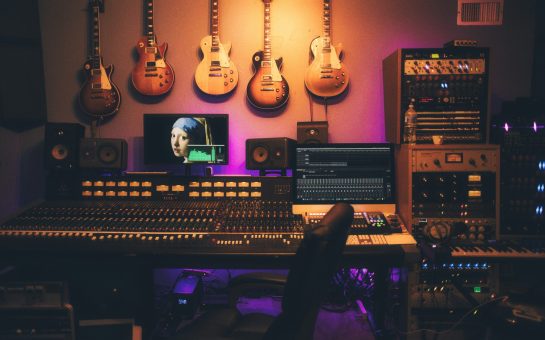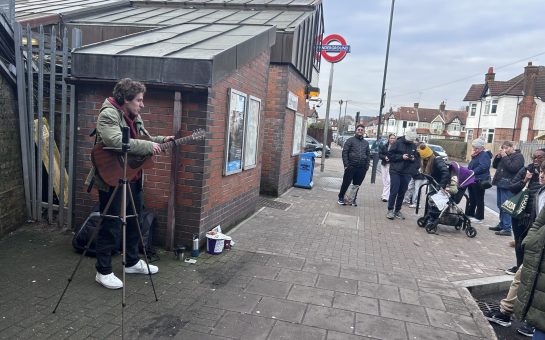After more than a year of closure as a result of the pandemic, a music foundation in Merton has reopened its doors to schoolchildren.
Merton Music Foundation (MMF), which recently celebrated its 30th birthday, has now resumed in-person lessons and band rehearsals at its new music centre at Merton Abbey Primary School in Wimbledon.
MMF works with primary and secondary schools in the borough to inspire young people as young as six years old to explore music and continue developing their talents up until the age of 18.
Although MMF offers lessons for all music genres, it is best known for Jazz. In fact, it is the only music service in the country that has its own arrangement with the Lincoln Jazz Centre in New York.
Chief executive Elisabeth Wigley has been running MMF for the last ten years.
Adapting to a new way of teaching
When asked about the impact the pandemic and lockdown had on the foundation, Wigley said: “It was just horrendous. We have a core team that’s salaried, but all the other teachers are self-employed musicians.
“So overnight, all their playing disappeared, all their shows were cancelled, everything was just gone.”
Desperate to keep lessons up and running, MMF managed to move all its teaching to an online platform within two weeks, with children taking part in virtual performances throughout the lockdowns.
Wigley added: “I take my hat off to the band leaders. It’s completely different, having children on mute and not having that personal engagement that’s so important.
“It wasn’t ideal, but it was better than not doing anything, and there were some upsides, too. Like meeting the children’s cats on camera!”
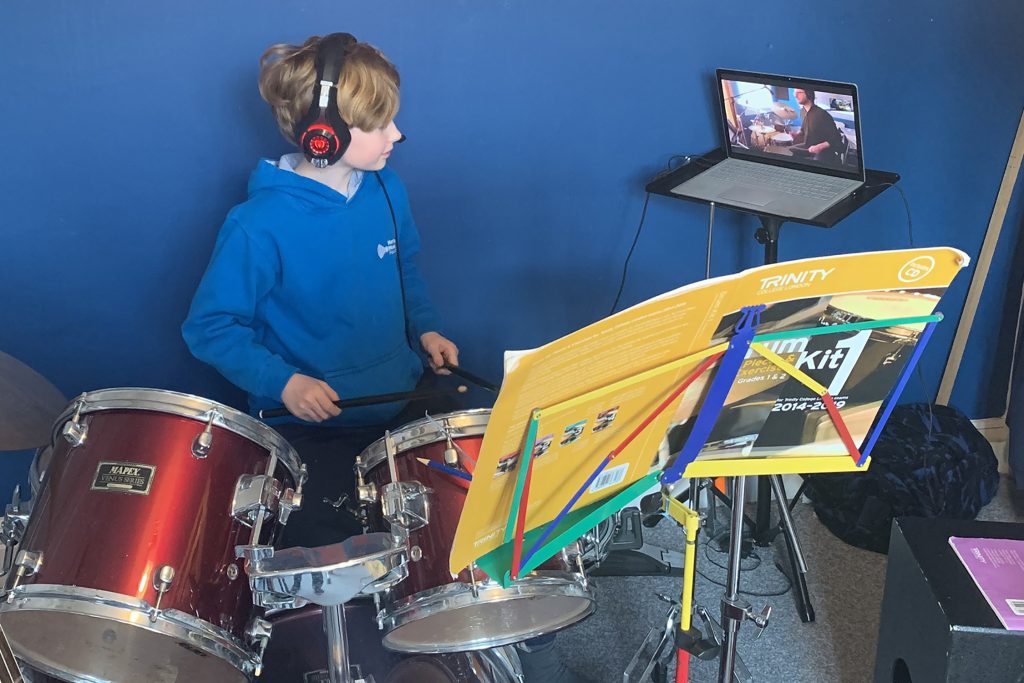
Music is for everyone
Wigley also highlighted MMF’s aims to make music more accessible to children from low-income families. When the pandemic hit last year, more middle class parents could continue to afford music lessons for their children, but many children from poorer families lost access to tuition because of the impacts of Covid-19.
Realising this, the foundation set up a campaign called ‘Don’t Stop the Music’ and raised £10,000 to help heavily subsidise the costs of tuition for these children who otherwise would not have been able to continue lessons.
“We couldn’t believe how much we raised. Young people have suffered a lot during this pandemic and a lot of parents said that the lessons gave the children a feeling of normality was really important to them,” said Wigley.
“To me, music is a human right. It shouldn’t be a luxury, it’s absolutely essential. If you speak to anybody, we all go to music for hope, solace, to cheer us up, whatever you’re feeling, and people have used and needed music more than ever this year. We’ve all needed our music in some way. So to think of it as an extra or an add-on is just crazy.”
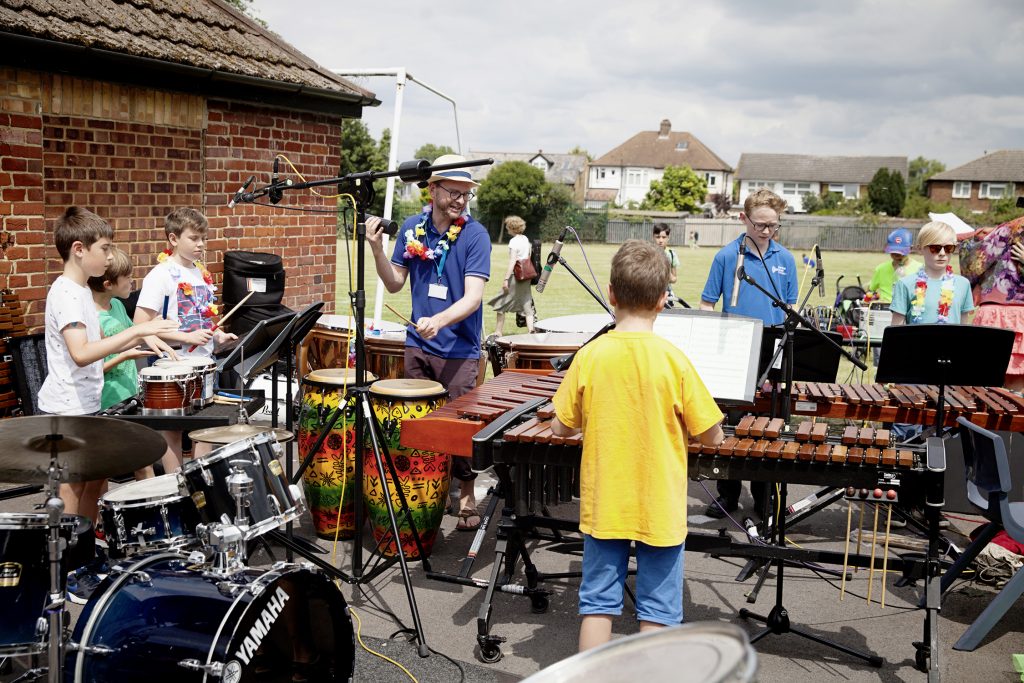
The decline of music in schools
Research has found that the pandemic has had a ‘devastating impact’ on music education in the UK, adding to the already steady decline as a result of government cuts to arts in favour of core subjects like maths, English and science.
GCSE results published by Ofqual last year revealed that the number of pupils studying Music has fallen drastically over the last twelve years. In 2008, 54,000 studied the subject, compared to just 35,000 in 2020 – a 35 per cent decrease.
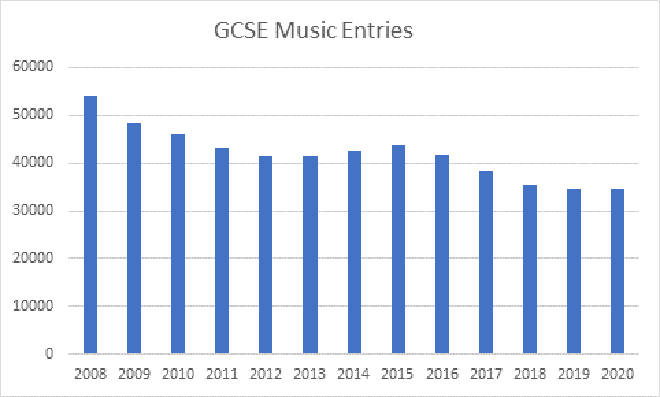
The same trend can be seen for older pupils, with the number of pupils studying A-Level having almost halved in the last decade, from around 10,000 to around 5,000 a year.
Thirty years of musical memories
MMF was initially set up in 1991 as a result of cuts made by Merton Council to music services in the borough.
Thirty years later, the foundation has been able to consistently offer children from a range of backgrounds the opportunity to explore music and perform on a variety of stages and events, including the Royal Albert Hall, Wimbledon championships and Tower of London.
MMF’s bands have even performed internationally at the Montreux jazz festival in Switzerland and at the Menin gate in Belgium.
Wigley said: “Some of the children have never even been to see the tennis at Wimbledon, so to sign up for Royal Albert Hall concert and perform is life-changing for a lot of them.
“They can always say ‘I sang at the Albert Hall’ and no one can take that away from them.”
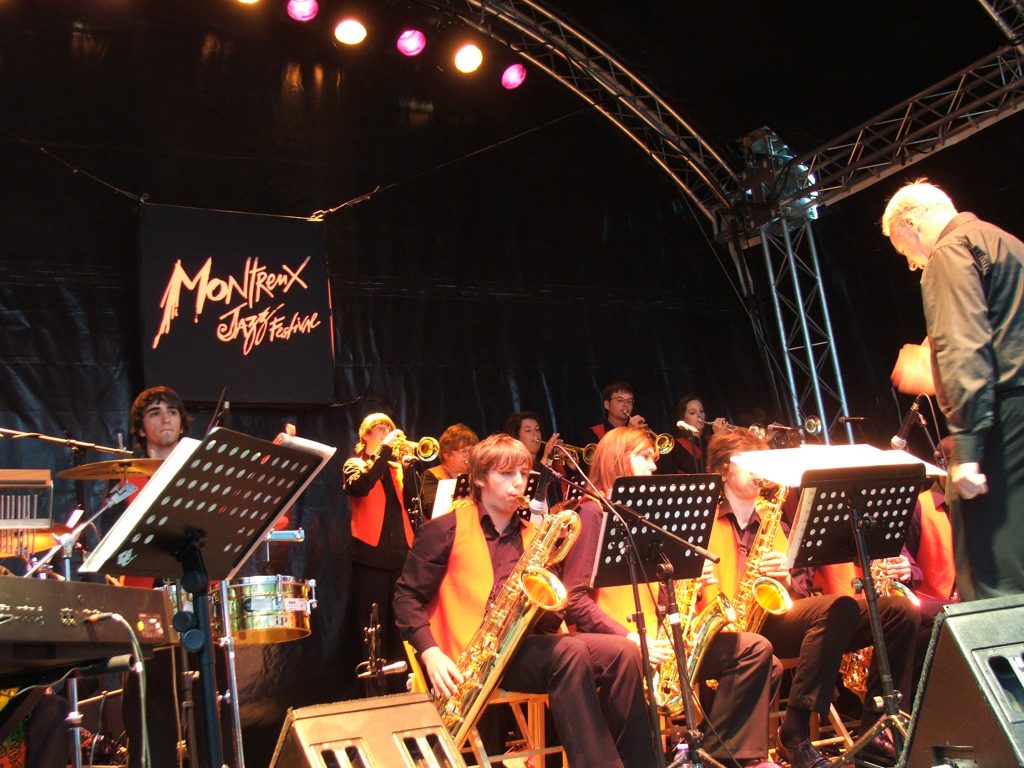
Alumni: Where are they now?
Notable MMF alumni include award-winners Yazz Ahmed, Ben Lovett, Louise Alder and Janek Gwizdala, and others who started their musical careers at the foundation have come back to teach.
Ed Babar, 34, from Brixton, who was at MMF from 1994 to 2005, came back in 2010 as a teacher after finishing his music studies at University.
He said: “For me, my music career has almost been defined by Merton Music Foundation. Certainly the most enjoyable aspects of my musical upbringing were there. I met some amazing musicians and made lifelong friends. It was through MMF that I took up double bass and it was through them that I got so many opportunities, too.
“And then as a tutor I think the variety of opportunities offered by MMF certainly give me experience working on a real range of fields across the musical and teaching profession. 1-to-1 teaching, whole-class teaching, working with ensembles, orchestras and string groups, working with Special Educational Needs (SEN) schools.
“There’s such a range in the services that Merton Music Foundation offers that as a tutor it was just fantastic to get so much experience doing all those different things.”
Babar left MMF as a teacher in 2017 and now works with a music charity, leading Blues & Roots ensemble, a nine-piece band performing music by Charles Mingus, a prominent American jazz band leader and composer known for writing protest music promoting civil rights in 1940s-1970s America.
“We’re not a music school but we go into schools, youth centres, pupil referral units, and try to encourage pupils to play creatively through improvisation. And we teach them about the history of jazz, too. I think that’s really important, seeing it in a wider context. Why was jazz originally created? Where did it come from? It came from the blending of all these different cultures. And we teach the kids why understanding different cultures is important and all the amazing things that can come from it.”
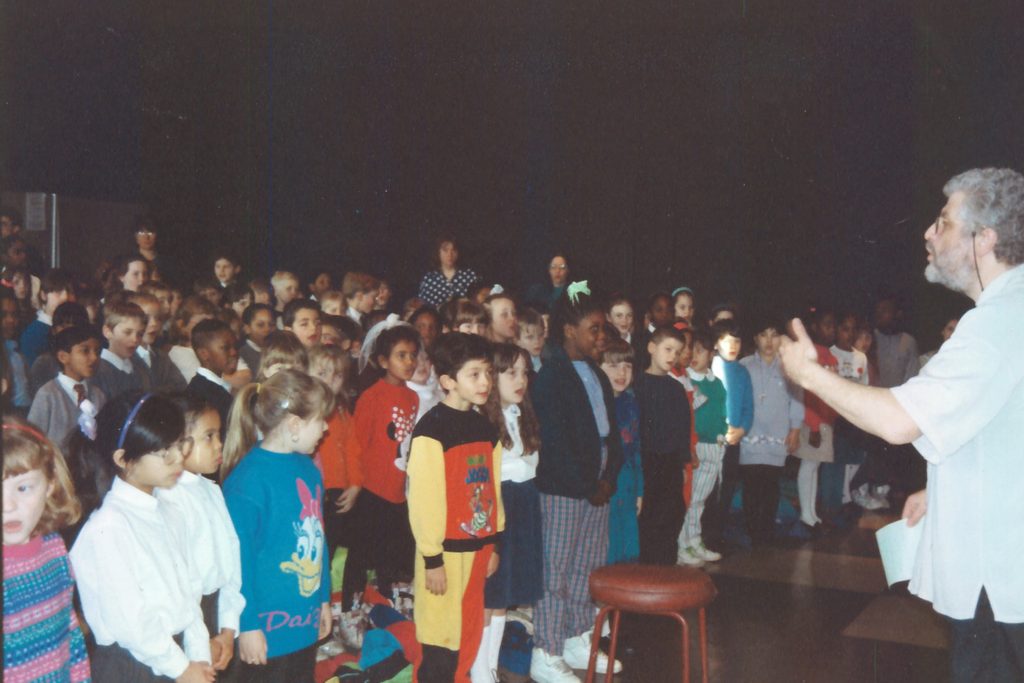
Babar is not the only MMF graduate to have close ties with the foundation. John Merriman, 42, was only 12 years old when he joined the foundation and stayed there throughout his childhood.
He is now a music producer and has been running a sustainable, carbon-free recording studio in Morden called Crown Lane Studio for the last 17 years, which MMF frequently use for recording.
Merriman said: “I got into MMF through a percussion group. It was a great group. It was the social side that drew me to it at first, to make friends and suddenly realise that there are people your age who are also as crazy as you are about music.
“It was just brilliant. I remember going every Monday night and just loving it. And it especially gave me role models to look up to.”
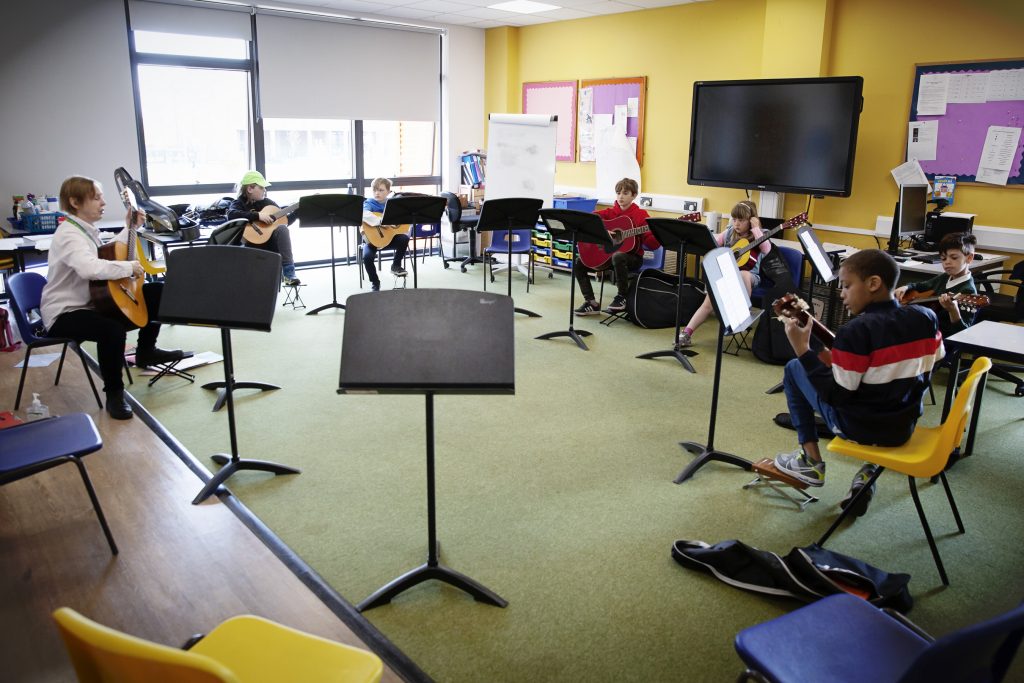
The future of music at MMF
MMF is now offering in-person lessons at its new South Wimbledon Music Centre at Merton Abbey Primary School and staff are pleased to be bringing music learning back to local schools.
“It’s a scary time for musicians,” said Wigley. “But you’ve got to follow your dream, haven’t you? If that’s what you love to do and that’s what you’re committed to then you’re going to make it happen.
“Musicians are very creative people. They’ll find ways. They’ll adapt. They’ll write more, they’ll arrange more. There’ll be other forms of concerts and opportunities. I’m sure that sort of creativity will see them through.”


